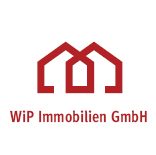General Questions
- 1. DOES THE PURCHASE OF REAL ESTATE IN GERMANY ENTITLE ME TO PERMANENT RESIDENCE IN GERMANY?
- 2. WHAT GIVES FOREIGNERS THE RIGHT OF PERMANENT RESIDENCE IN GERMANY? BLUE CARD AS OF 01.08.2012. WHAT DOES IT MEAN?
- 3. WHAT MAINTENANCE COSTS WILL I INCUR AS A PROPERTY OWNER?
- 4. WHAT IS HOT AND COLD RENT IN GERMANY?
- 5. WHAT INCOME WILL I GET IF I BUY AN APARTMENT FOR RENT?
- 6. CAN FOREIGNERS GET A MORTGAGE LOAN FROM A GERMAN BANK AND UNDER WHAT CONDITIONS?
- 7. IF I BUY A RENTAL APARTMENT IN GERMANY, CAN I LIVE IN IT AND WHEN?
- 8. WHAT ADDITIONAL COSTS WILL I INCUR WHEN BUYING REAL ESTATE IN GERMANY?
- 9. HOW CAN I RESERVE THE APARTMENT THAT I LIKE?
- 10. WHEN AND HOW DO I HAVE TO PAY THE PURCHASE PRICE OF THE APARTMENT?
Other questions
- 11. CAN I BUY AN APARTMENT IN GERMANY AND PAY ON LOCAL IN CASH?
- 12. CAN I OPEN AN ACCOUNT IN A GERMAN BANK?
- 13. HOW DO I RAISE MY OWN RENT IN GERMANY?
- 14. WHAT IS THE EFFECT OF THE FACT THAT THE APARTMENT IS IN AN OLD HOUSE?
- 15. WHAT IS THE EFFECT OF THE FACT THAT THE APARTMENT IS IN AN OLD HOUSE?
- 16. IN WHAT ORDER IS THE PAYMENT FOR REAL ESTATE UNDER CONSTRUCTION IN GERMANY?
- 17. WHAT DOCUMENTS DO I NEED TO SELL MY PROPERTY IN GERMANY?
- 18. RESIDENCE PERMIT IN GERMANY, PROCEDURE FOR APPLICATION?
